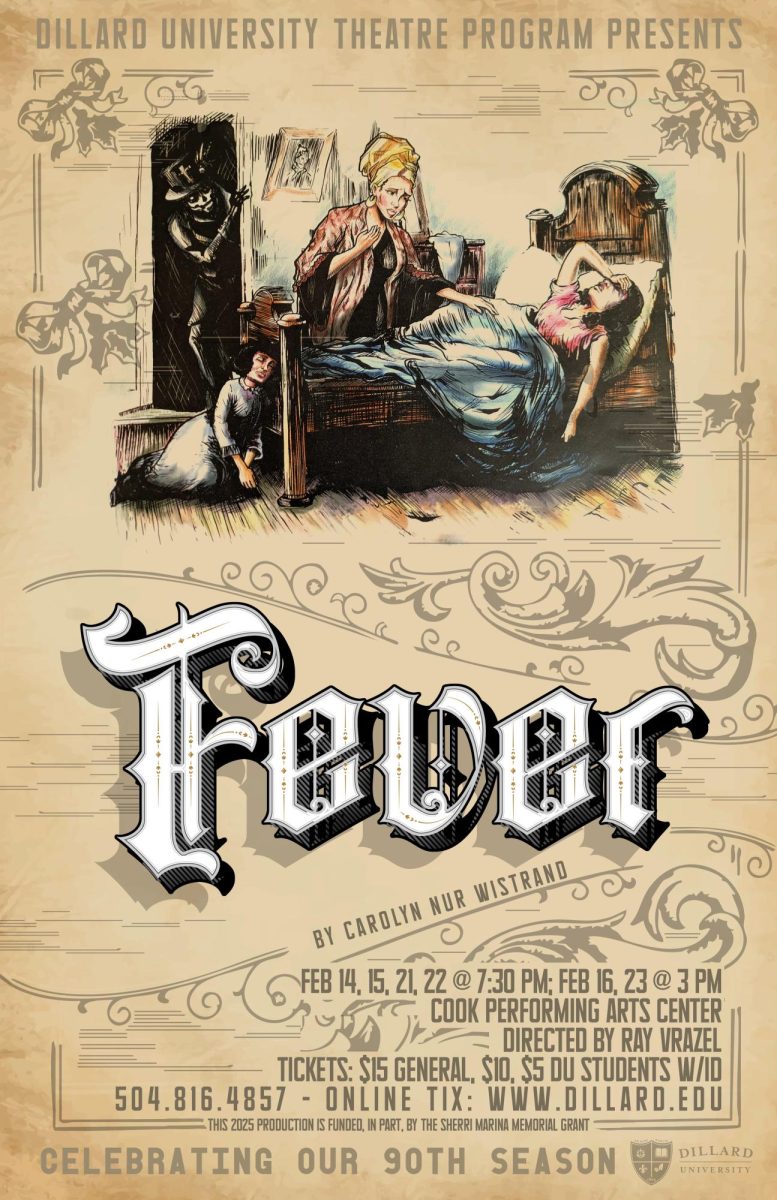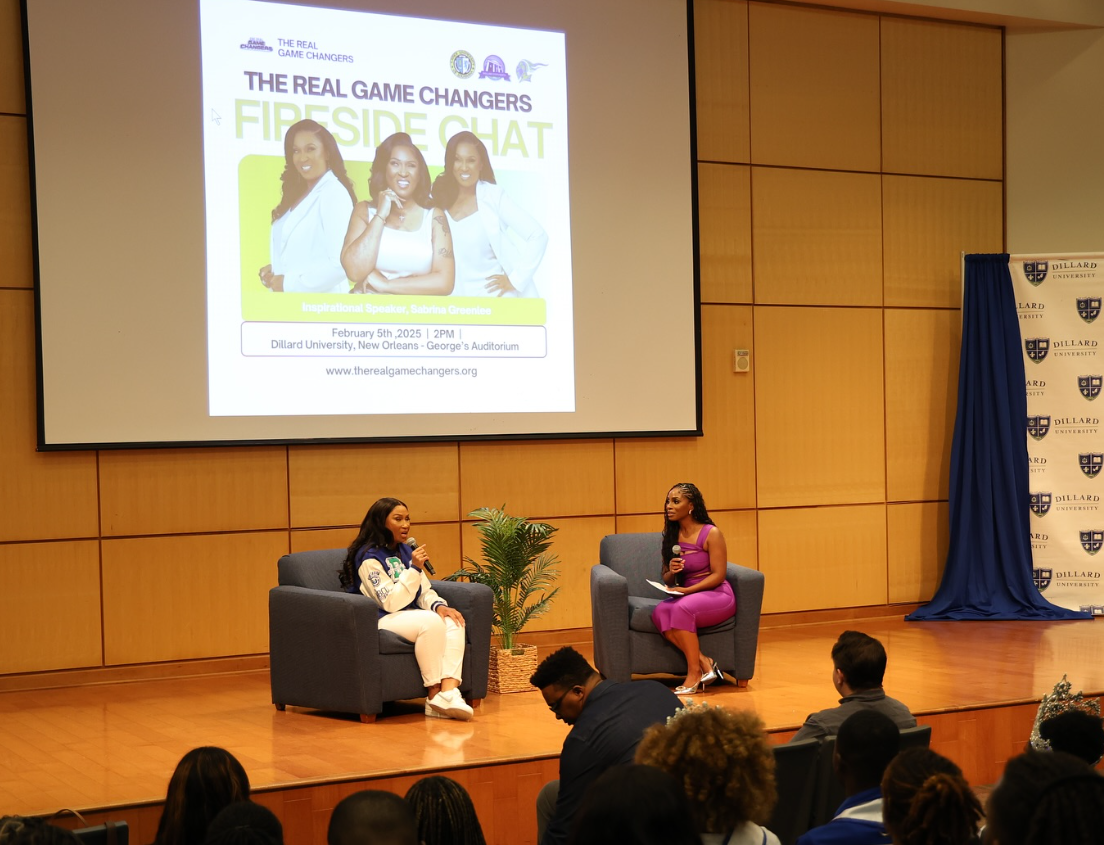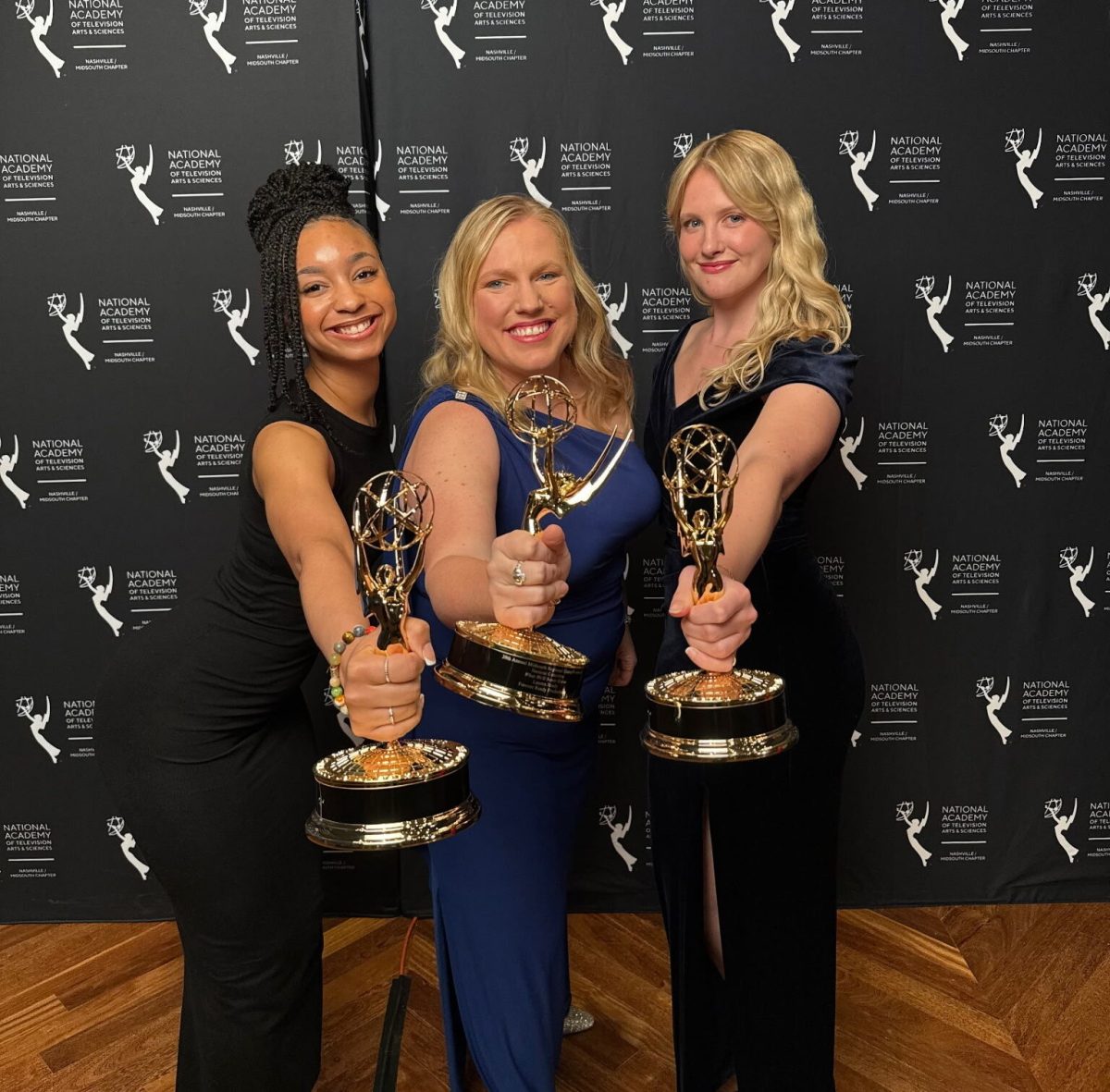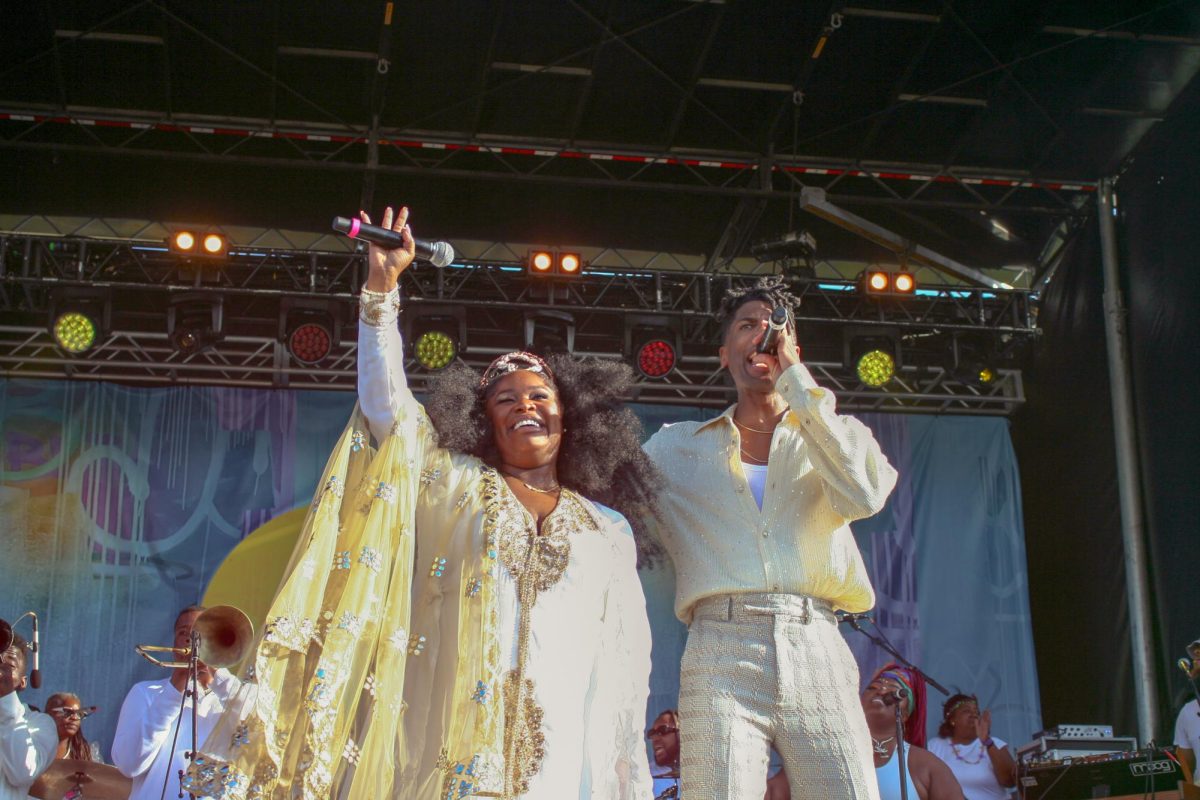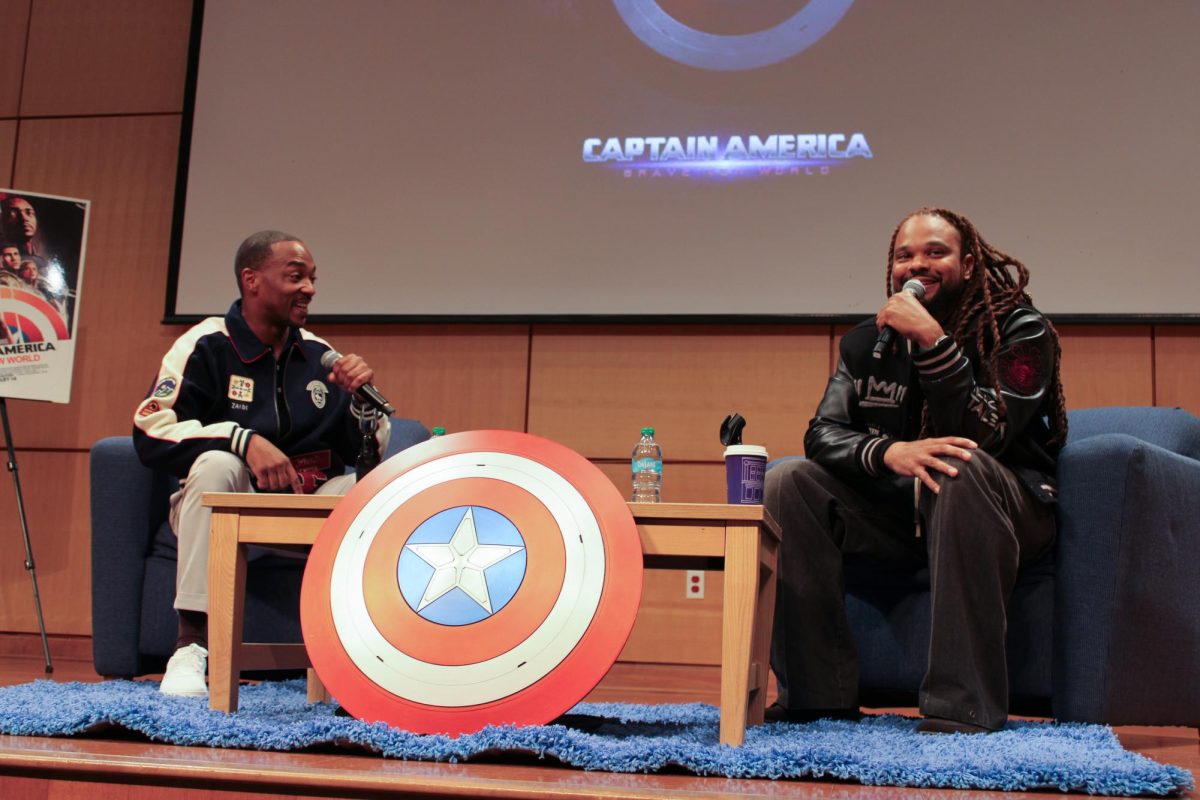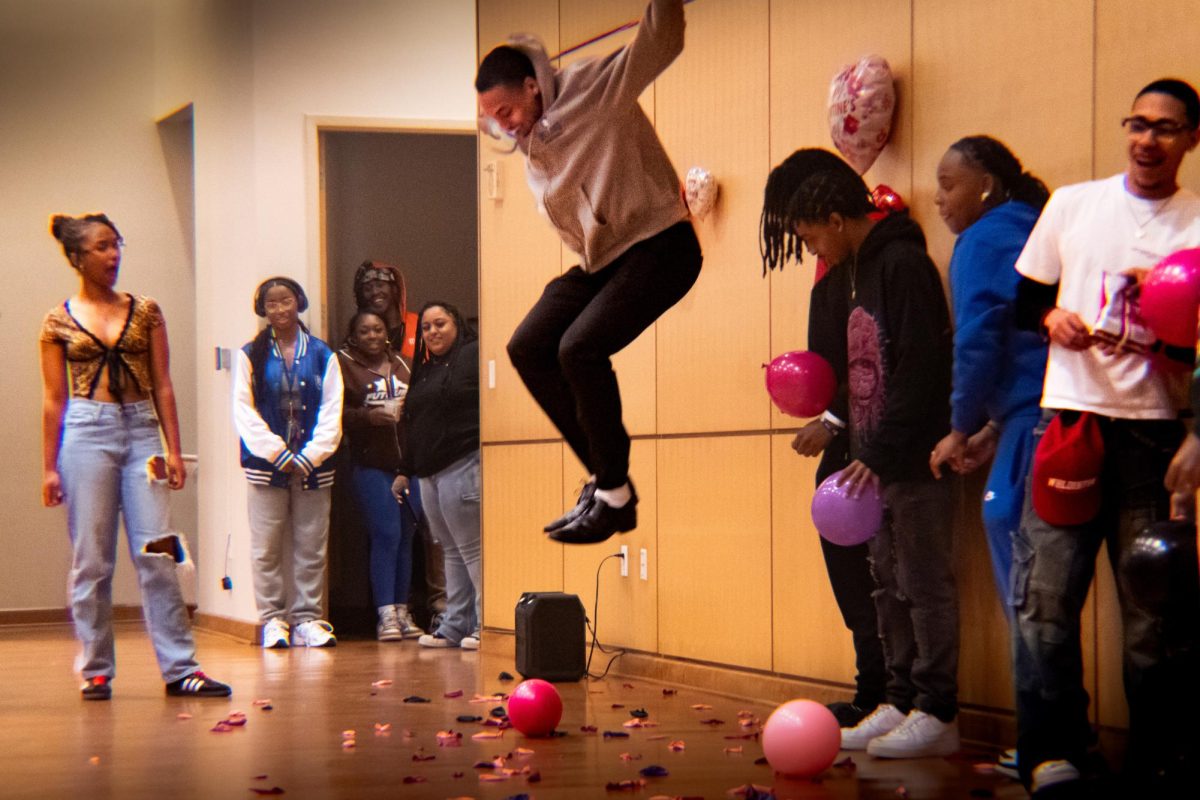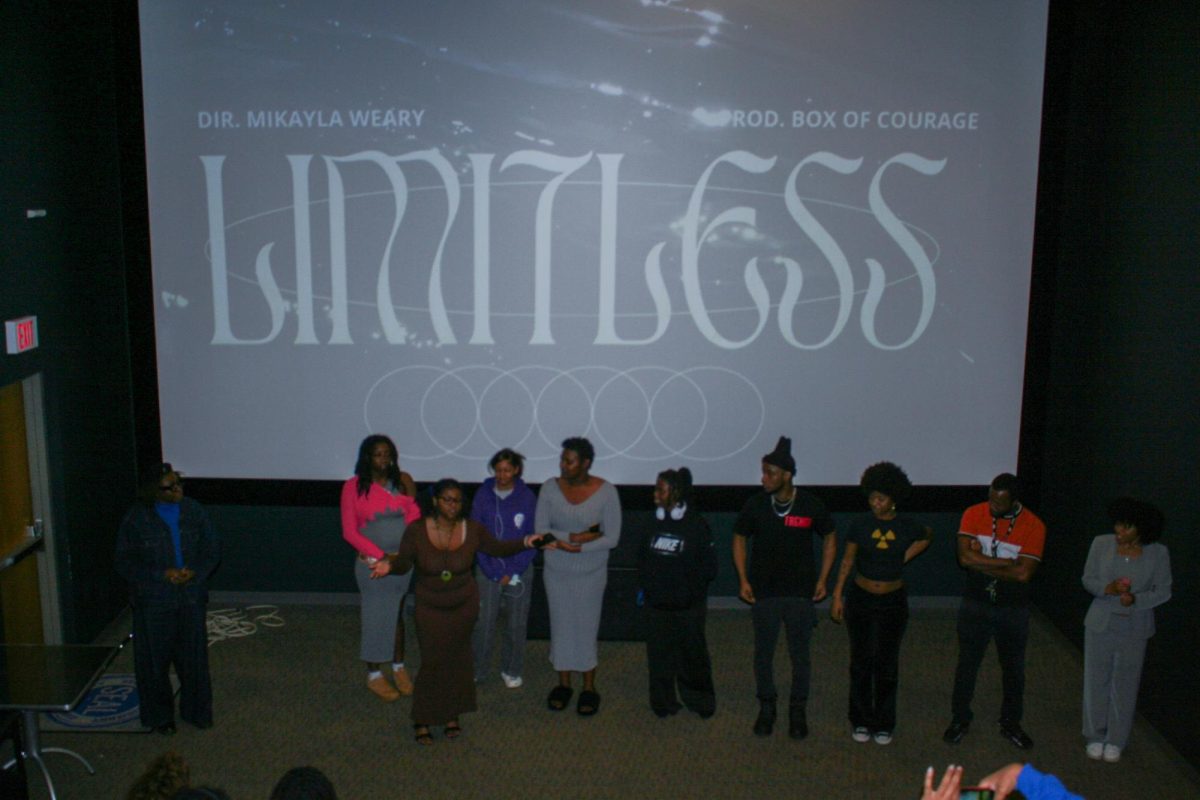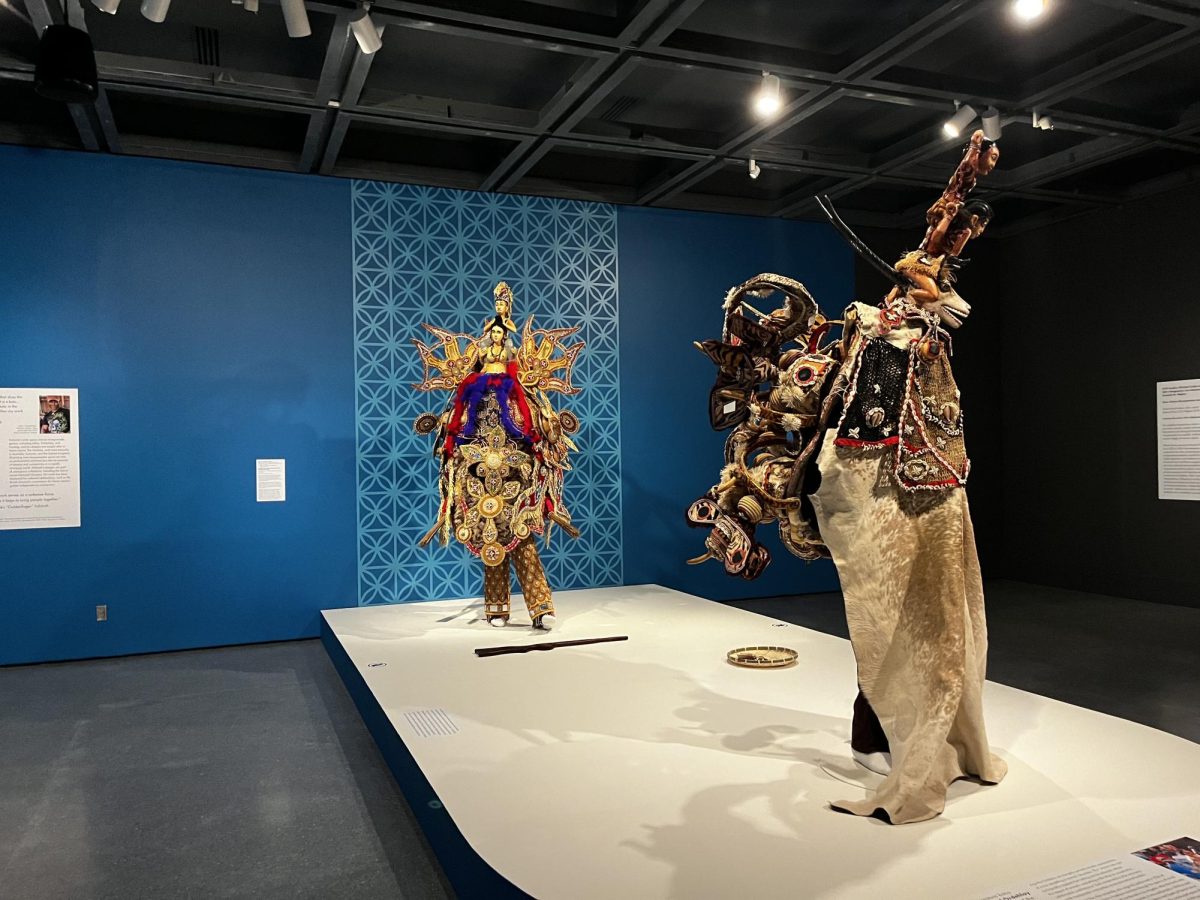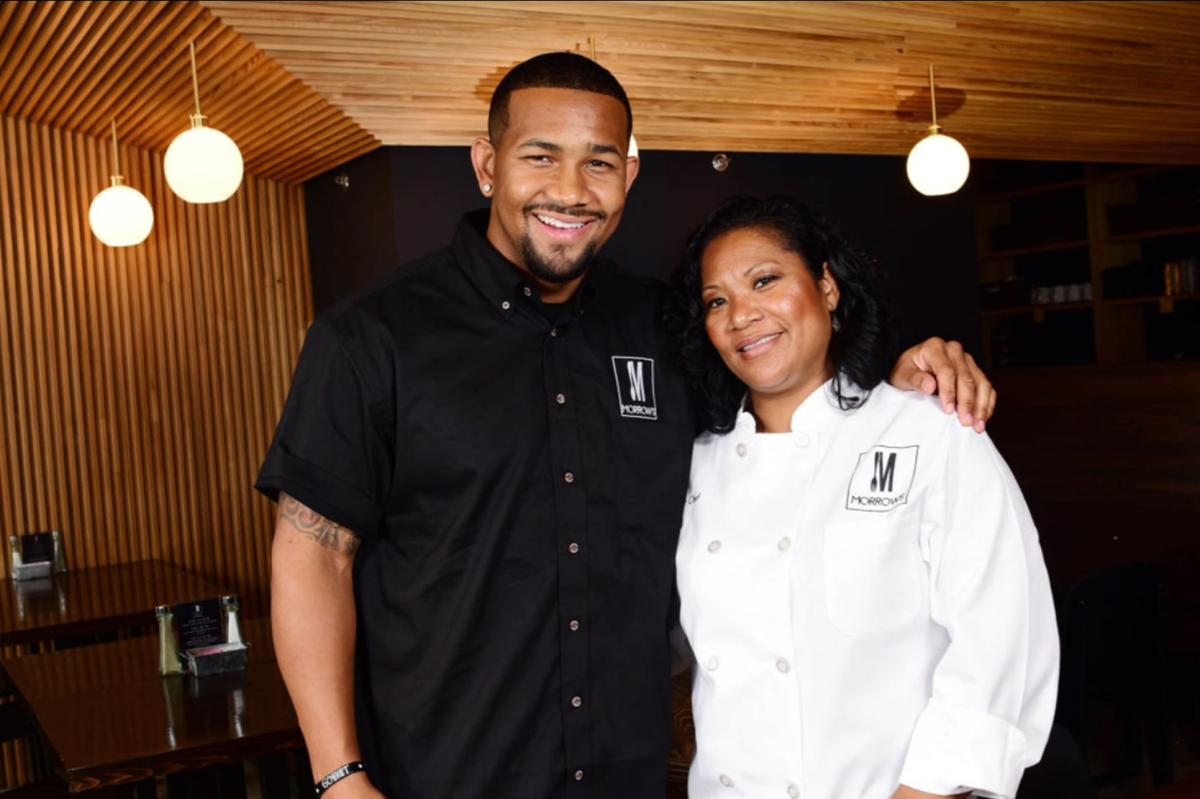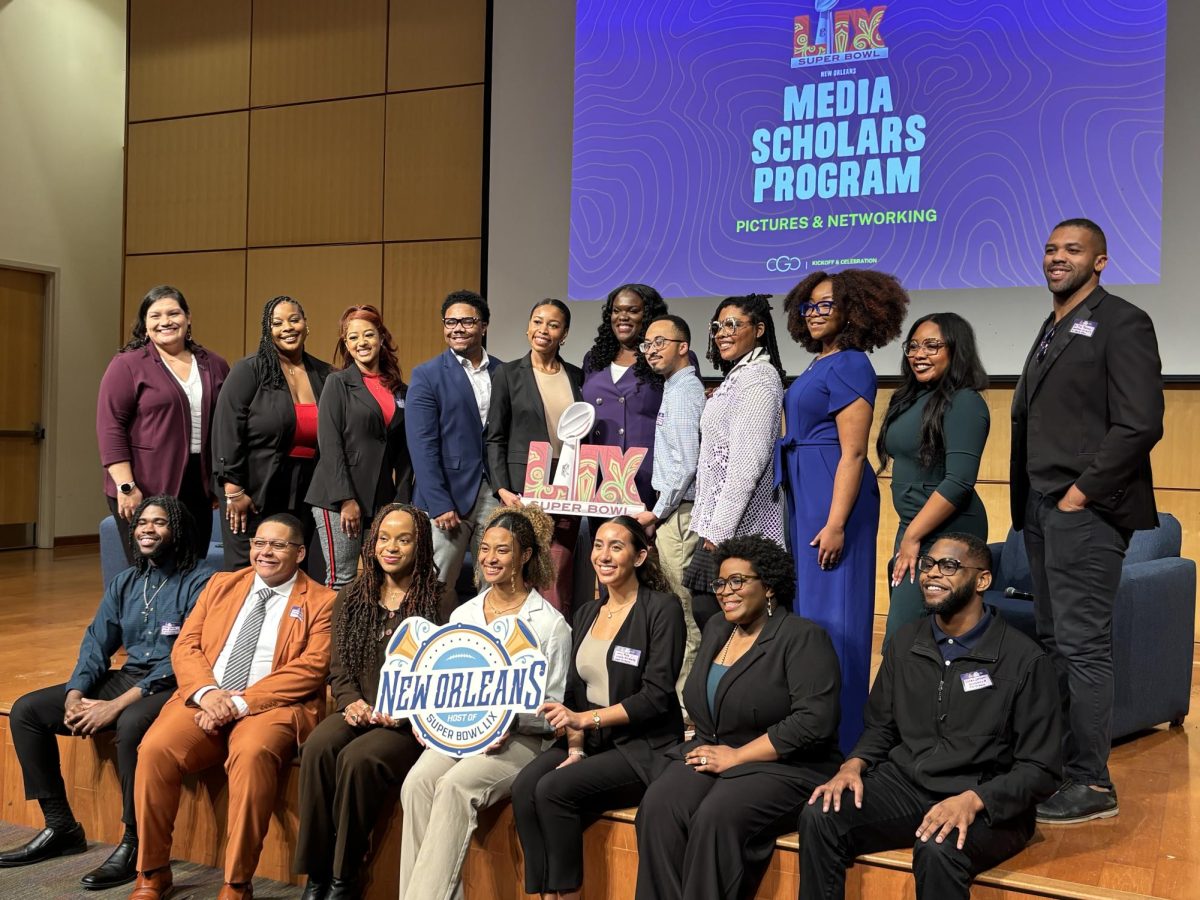Editor’s note: This article includes frank and offensive language.
Hip-hop performers set trends for young African American males, according to a student presenter at a DU Women’s Studies’ “Hip-Hop and Gender” presentation last week.
Tiffany Parson, a sophomore nursing major from Memphis, cited sociologist Shirley A. Hill’s assessment of setting trends in the book “Black Intimacies: A Gender Perspective on Families and Relationships” as Parson discussed “I’m a Dog,” by rapper Gucci Mane.
Yet Parson said the rappers put on a façade: “[T]hey do not necessarily live that way. They want people to think they live that way.”
Parson was one of eight students in English Professor Andrea Boll’s International Women’s Studies course who offered their perspectives on hip-hop in three sessions open to the public on March 4, 9 and 11.
Boll called the presentations pretty intense, with the discussion of the song “Nasty Bitch,” by New Orleans rapper Bust Down being the most intense on March 11.
Jasmine Kepp, a sophomore nursing major from New Orleans, discussed the song of three women’s separate interactions with one male as described from the man’s perspective. Bust Down tells a story of sex with a lesbian crack addict, a “no-good freak” who walked around like she was too cute and a prostitute on crack.
Kepp said that in each instance, the man was using his penis as a weapon, and his goal was to hurt the woman’s feelings. During the discussion, Boll said the man was hypocritical because he is having sex with the women he calls nasty.
Anastacia Scott, a senior psychology major from New Orleans, said the women in the song are sad because they accept their situations.
“They don’t want to better themselves,” she said.
In Parson’s discussion, she quoted part of Mane’s lyrics in which he says of a woman, “I’m a treat her like a dog/ feed her like a dog/ beat her like a dog/ then pass her to my dog.” She said it’s sad that some African American women in poor communities accept being demeaned and disrespected to get some sort of status.
She said women must stand up for themselves: “I’m not a bitch or a ho; I’m Tiffany.”
Scott discussed gender stereotypes in Grammy-nominated R&B recording artist Melanie Fiona’s hit song “It Kills Me.” She said the lyrics of the song offer a scenario in which men are defined by the world and women are defined by men.
She said the woman in the song conveys she has no hope without a man, as shown in the lyric: “But I can’t be alone/ I need you to come on home/ I know you messin’ around, but who the hell else is gonna hold me down.”
Scott said the woman in the song is conveyed as weak and is devaluing herself.
(Angelica R. Boyd contributed to this report.)



